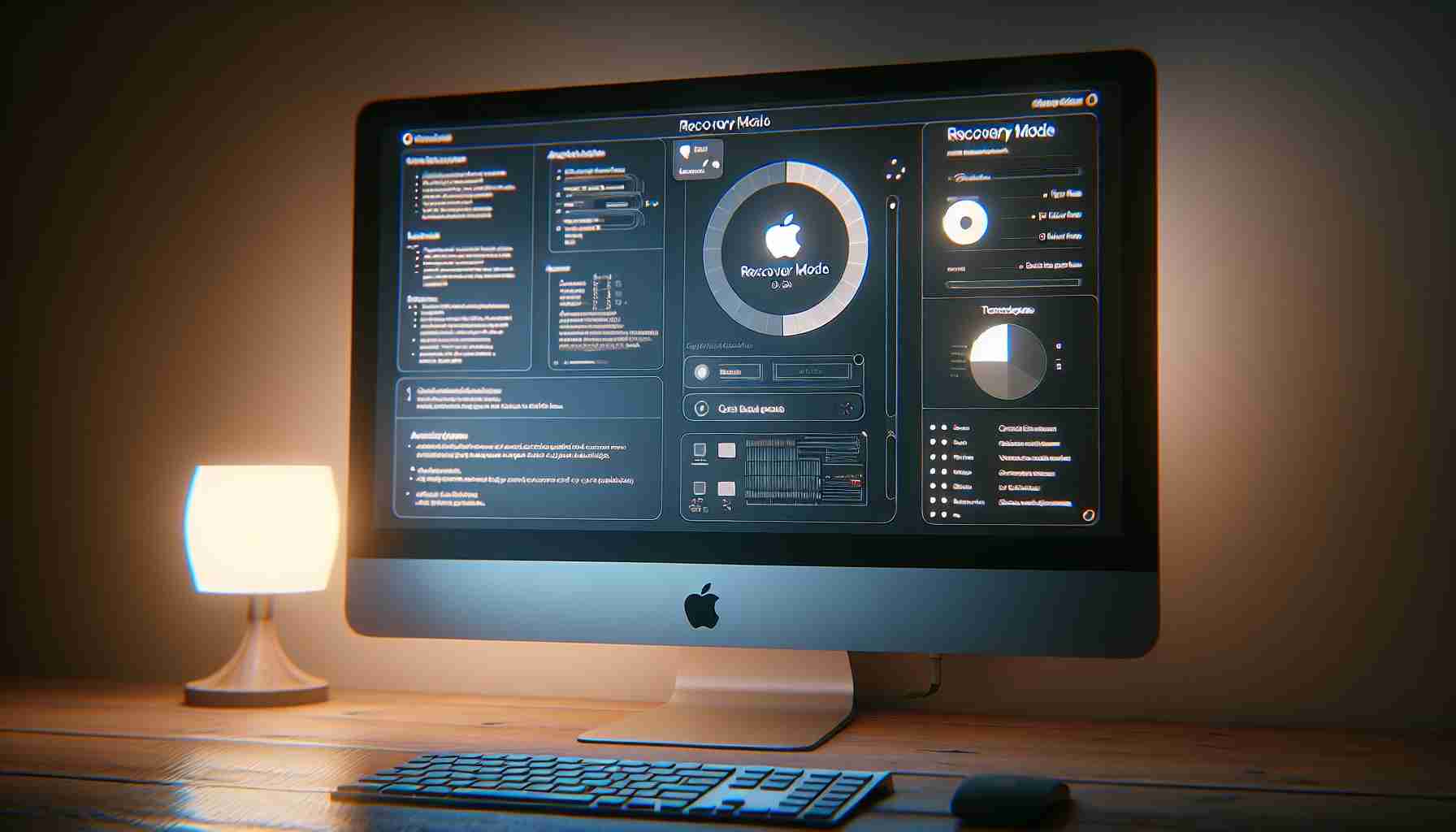Recently, I encountered an unexpected challenge while attempting to access the Recovery mode on my new Mac, equipped with the T2 security chip. Motivated by a detailed guide on AppleInsider, I intended to create an external Recovery disk first, but my curiosity led me to test the Recovery mode instead. Unfortunately, no combination of keyboard shortcuts, including CMD-R and various option keys, yielded results. Instead, I found myself landing on the standard login screen.
To further investigate, I tested the same process on my spouse’s MacBook 12. In her case, the Recovery mode activated immediately, providing a clear indication of the expected functionality. This discrepancy raised questions about my device’s performance, prompting me to ponder whether my use of a third-party keyboard could be the root cause of the issue. My current setup features a Satechi Bluetooth keyboard and mouse, which operate flawlessly under normal circumstances; however, there may be a connectivity lapse during the boot process.
Several options present themselves for troubleshooting this issue. Although I am aware of the general advice to try a wired keyboard, I currently do not possess one. However, if others believe that my wireless keyboard is hindering access to Recovery mode, I am open to seeking alternatives to remedy the situation.
Troubleshooting Mac Recovery Mode Access: A Comprehensive Guide
Accessing the Recovery mode on a Mac can be critical for performing tasks such as system repairs, macOS reinstallation, and disk utility maintenance. However, users sometimes encounter obstacles when trying to access this feature. This article explores unique troubleshooting tips, addresses key questions, highlights challenges, and evaluates the pros and cons of various troubleshooting methods to effectively gain access to Recovery Mode.
Key Questions and Answers
1. What is Recovery Mode?
Recovery Mode is a special environment on macOS that allows users to troubleshoot and restore their system. Users can access features like Disk Utility, reinstall macOS, restore from Time Machine, and access Terminal commands.
2. What are the keyboard shortcuts to access Recovery Mode?
To access Recovery Mode, hold down Command (⌘) + R during startup. If you wish to access options such as Internet Recovery, you can use Option + Command + R or Shift + Option + Command + R for specific macOS installations.
3. Why might my Mac not boot into Recovery Mode?
Several factors can interfere with accessing Recovery Mode, including hardware issues (like problematic keyboards), the type of Mac model (especially those with T2 security chips), or software settings that could prevent startup options from functioning correctly.
Key Challenges or Controversies
One major challenge users face when trying to access Recovery Mode is the influence of third-party peripherals, particularly wireless keyboards and mice. Users of T2-equipped Macs reported that their Bluetooth devices might not be recognized during the very early stages of the boot process, leading to frustrations in accessing Recovery Mode.
Security features related to the T2 chip can also impose restrictions. Some machines may override Recovery features based on system management settings, prompting additional complexity.
Advantages and Disadvantages of Various Troubleshooting Methods
Advantages:
– Using Wired Keyboards: A wired keyboard guarantees compatibility from the moment you power on your Mac, ensuring the expected keyboard shortcuts work without delay or connectivity issues.
– Safe Mode Access: By accessing Safe Mode first (by holding Shift while booting), users can sometimes resolve software issues that may prevent Recovery Mode access.
Disadvantages:
– Dependency on Hardware: If your keyboard is incompatible or faulty, you may be unable to access Recovery Mode at all, rendering troubleshooting ineffective.
– Limited Understanding of Startup Options: New users might struggle to understand how to use key combinations properly or may be unaware of the significance of startup features, leading to ineffective attempts at troubleshooting.
Suggested Solutions for Troubleshooting
1. Try a Different Keyboard: If possible, test the Recovery Mode with a different wired keyboard to determine if the wireless keyboard is causing the issue.
2. Reset NVRAM/PRAM: Resetting your NVRAM/PRAM may resolve some underlying issues related to startup disk preferences. To do this, hold down Command (⌘) + Option + P + R during startup.
3. Use Internet Recovery: If local recovery options are unavailable, you can access Internet Recovery by pressing Option + Command + R at startup, which downloads recovery tools directly from Apple servers.
Conclusion
While accessing Recovery Mode on a Mac can present unique challenges, understanding the underlying issues, testing different peripherals, and using proper troubleshooting techniques can significantly improve the chances of success. Embracing these methods allows users to maintain their Mac effectively and avoid more severe complications.
For more information about Mac troubleshooting, visit Apple Support.












